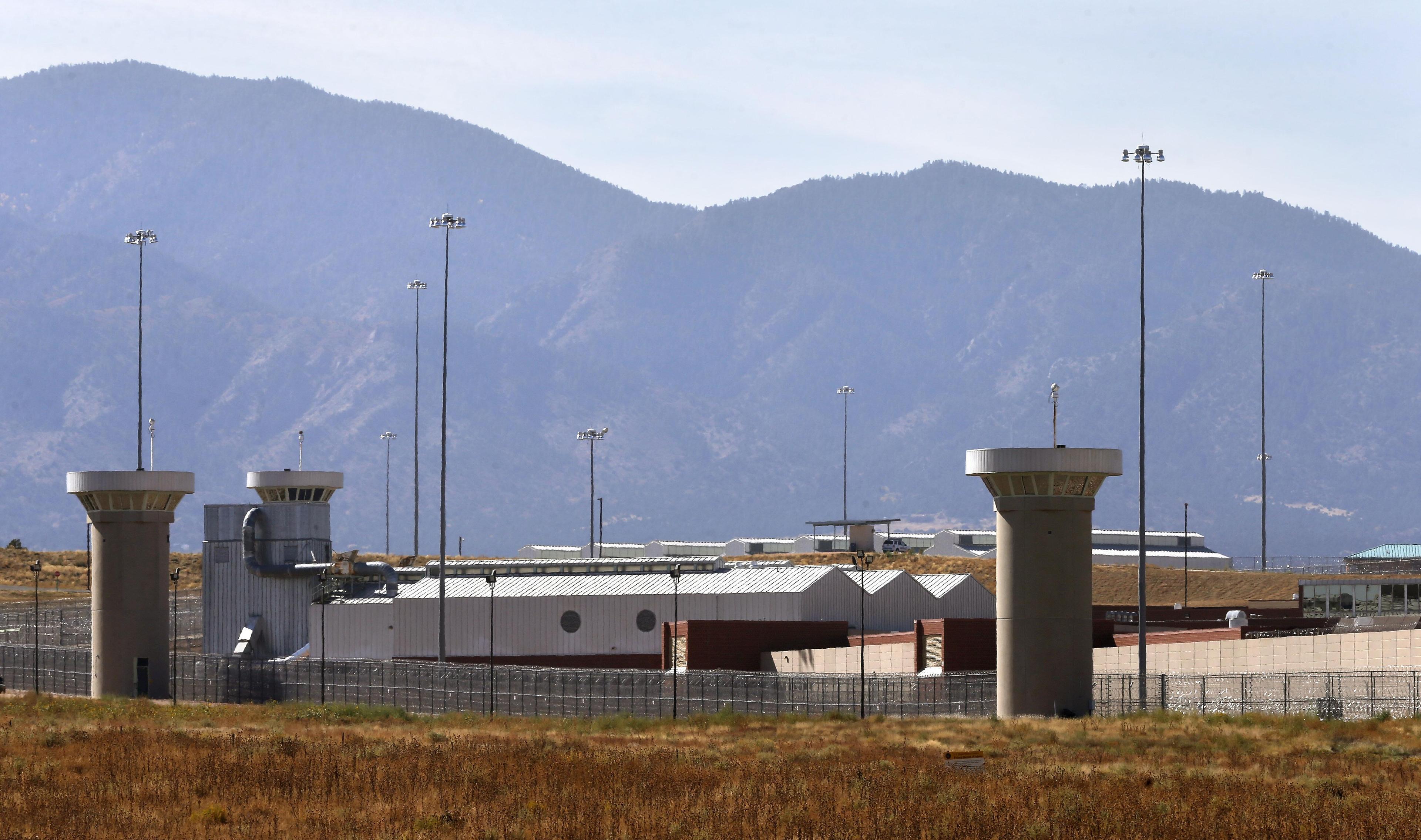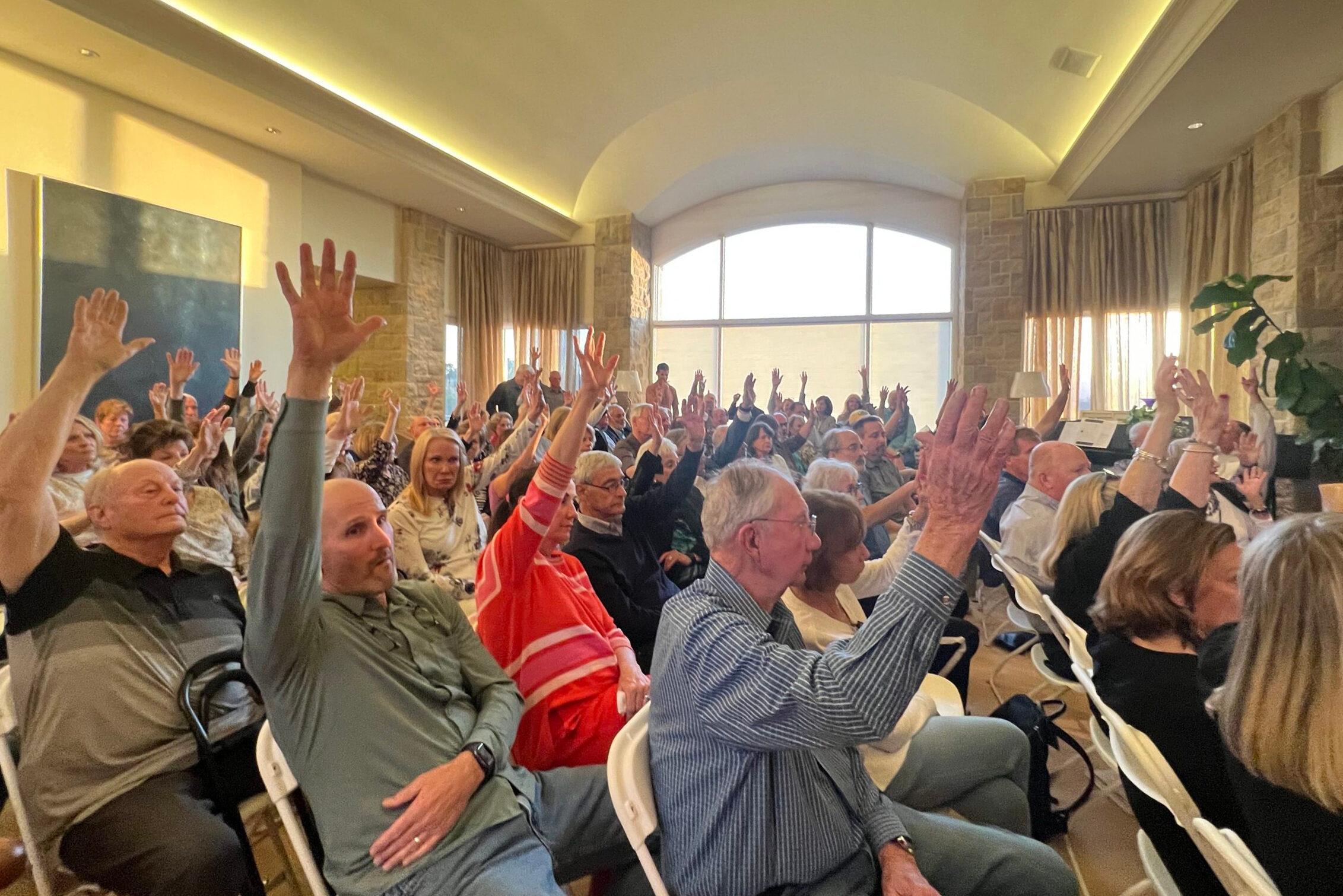
Democratic state Sen. Jeff Bridges stood before more than 150 people in the airy central room of a Cherry Hills Village mansion. The crowd sat in rows of chairs that were cramped even in this 6,500-square-foot home. And they were furious.
Bridges was here in one of Colorado’s wealthiest municipalities — along with several other elected officials — to tamp down the backlash that has threatened to consume Colorado’s land-use reform bill.
“Is this the kind of bill we could change, and amend, and end up in a good place?” Bridges asked the crowd.
Before he could finish, shouts of “no” shot through the room.
The legislation, which is meant to increase Colorado’s housing supply by allowing more dense development in more places, has put lawmakers like Bridges on the receiving end of torrents of angry emails, calls and comments from property owners, local leaders and others.
That opposition has created chaos for the bill, which is a top priority for Gov. Jared Polis. Democratic senators representing several suburban metro districts already have come out in opposition to the bill, forcing a series of amendments that have significantly narrowed the proposal. Even now, the legislation could face more dramatic changes in the legislature’s final sprint.
Dozens of city leaders have formed an alliance
The meeting in Cherry Hills Village that night was a potent symbol of the fight. The village is an enclave of sprawling estates — surrounded outside its walls and hedges by the suburban neighborhoods and roaring roads of the south Denver metro.
“Is this just a hard no, no matter what is in the bill?” Bridges asked.
“Hard no!” came the shouts.
Some attendees at this super-sized meeting feared that if Gov. Polis succeeds in overriding the local zoning laws that govern growth here and in dozens of other Front Range cities, apartment buildings and condos could eventually appear among the estates.
“You’re in this more rural area — scenic views, beautiful place. And people want it that way,” said Doug Robinson, a former Republican gubernatorial candidate.
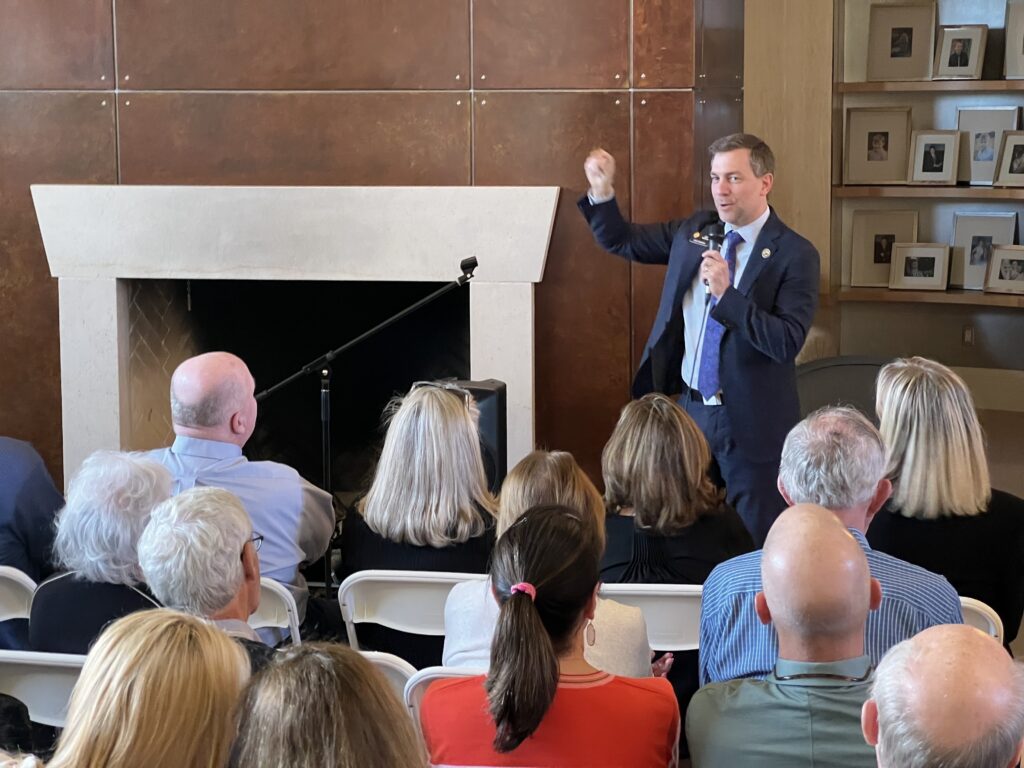
Opposition isn’t limited to wealthy areas.
The nearby city of Sheridan has a household median income of about $52,000, compared to $250,000 in Cherry Hills Village. And yet Sheridan’s mayor, Tara Beiter-Fluhr, was among the elected officials at the April 18 mansion meeting.
“One of the things that I think is amazing here is the breadth of opposition … the variety of cities that have said, ‘We don’t think this is the right solution,’” Beiter-Fluhr said.
She was concerned that the bill would just open the door for more luxury development in her community, potentially displacing renters and pricing out longtime residents.
The same pattern has played out across the Front Range. Among 39 cities in the Denver Metro Mayors Caucus, 38 are officially opposed to the bill — showing a stark intraparty split between the Democrats who run Colorado’s state government and the Democrats who run many of its cities. The mayor of Boulder is one of the only local leaders to support the bill.
The proposal would force local governments to allow greater residential density in parts of their cities. Instead of being restricted to only single-family homes, a neighborhood could have to allow a condo with four units. Apartment buildings would also be allowed around certain train stations and high-frequency bus routes.
Some of the cities opposing the bill, like Denver, have already embraced similar strategies at a smaller scale, but argue these decisions must stay in local hands.
For his part, Polis says cities are simply being asked to accommodate reasonable changes in order to build desperately needed housing supply. Colorado’s construction of housing has lagged behind its previous highs for the last decade, even as new residents have streamed into the state. Meanwhile, suburban sprawl has contributed to traffic and pollution.
“We're at a real fork in the road in Colorado,” the governor said at a recent press conference, backed by teachers, firefighters, business groups, union members, and environmentalists. “Do we want to create a better way, a Colorado way to plan for a future that's livable, affordable, and works for all of us?”
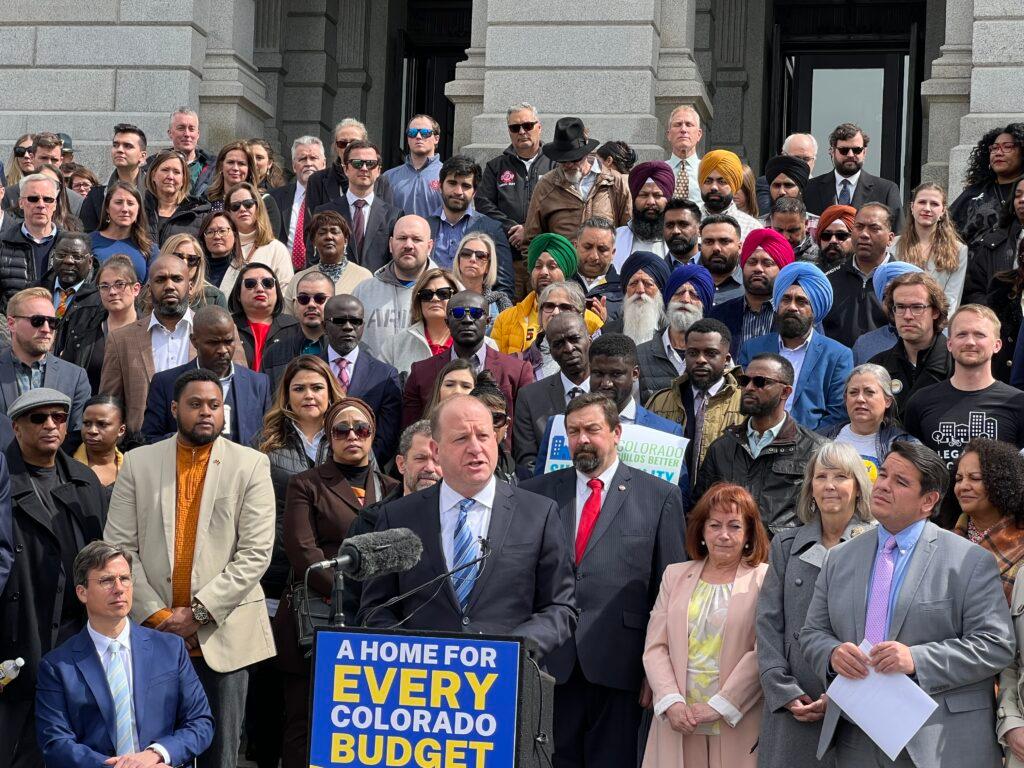
But the threat of change is potent. A single development proposal can draw scores of angry neighbors to city hall; the state proposal has done that on a much larger scale.
In an internal newsletter to its members, the Metro Mayors Caucus said that the proposal could “spawn confusion, discontent, and a NIMBY uprising while producing negligible affordable housing.”
Asked for comment, Polis’ office signaled he’s committed to seeing the bill through.
“The Governor isn’t interested in playing politics with this, he’s focused on ensuring that solutions are driven by the data and will actually work to reduce housing costs,” wrote spokesperson Conor Cahill.
YIMBYs are outnumbered at meetings
It’s a frustrating conundrum for pro-density reformers, who often find themselves outnumbered at public meetings about the bill. A single attendee, 22-year-old Michael Farrington of Denver, spoke out for the bill at the Cherry Hills Village meeting.
“If there’s so much local control and so much local favor for affordable housing, why don’t we have more affordable housing?” he asked the crowd.
At a recent virtual meeting for Fort Collins residents, Chris Conway was similarly one of a few voices in support of the bill.
While others argued that building condos and apartments would hurt the character of their neighborhood, Conway said that the housing prices were doing far greater harm to the city’s human character. An English teacher, Conway said many of his colleagues are driving 30 minutes or more to reach their schools in Fort Collins.
“My parents and their friends were able to buy houses relatively cheaply here and watch their investment grow. And then my generation, it just seems really out of reach for us,” he said in an interview.
Conway started YIMBY Fort Collins, a pro-density group that has attracted a couple hundred people in its first few months. But it’s hard to match the energy of anti-density groups, he said.
Current landowners are mobilized by their vested interest in their neighborhoods and their local governments. But it’s a different story to organize the potential future residents who would benefit from development, said Conway, who lives in an accessory dwelling unit.
State Sen. Julie Gonzales, a Denver Democrat who largely supports the bill, urged her colleagues to “look past their inboxes” and remember the desperate stories they heard from voters on the campaign trail.
“Those same forces who say no to any density, who say no to any opportunity to upzone — whether it's parcel by parcel or to citywide policies — those are the same forces and folks who are now coming and voicing their opposition on this statewide policy,” she said.
“Yeah, it's hard (to pass policies like) this. Also, it's why we're in crisis in the first place, right?” Gonzales continued.
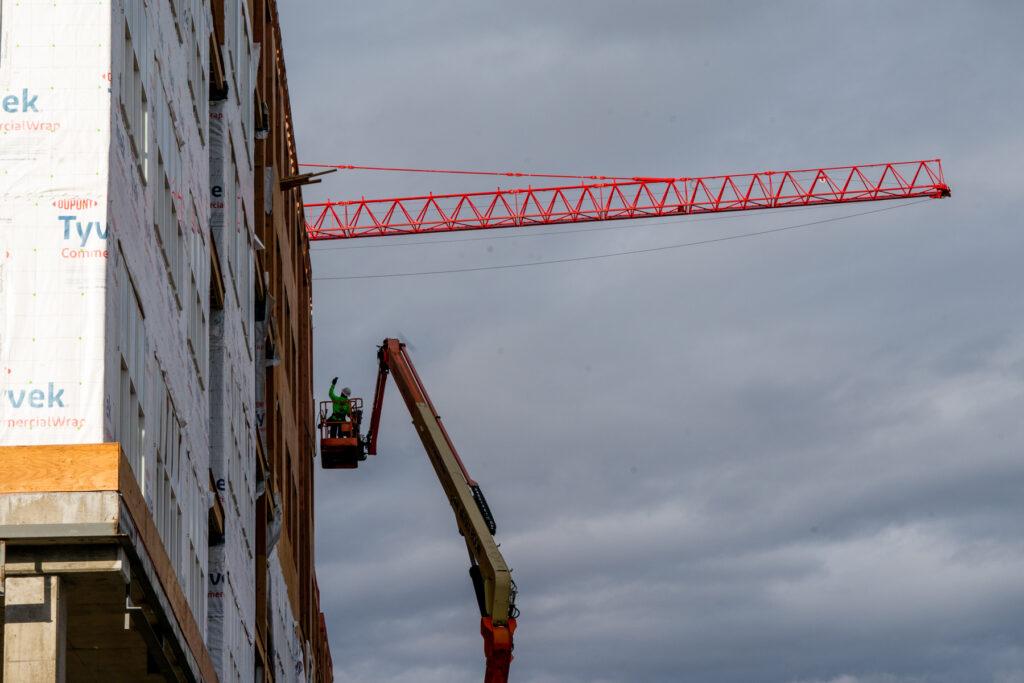
A recent survey conducted by Keating Research and backed by the nonprofit Healthier Colorado, which supports the bill, found 60 percent of respondents wanted to eliminate local restrictions and allow greater density. Those results came after respondents were given information on the potential benefits of the bill, and renters were more likely to support than homeowners.
Supporters also point out that denser buildings use less water per capita and that they tend to be cheaper than comparable new single-family homes. Some research shows that while new housing tends to be expensive, it can help ease costs in the overall market. It also can improve transit ridership, they argue.
Opponents of the bill say that density mandates would upset local planning around traffic, water and other infrastructure. They also point to the way that redevelopment has turned parts of Denver upside down, pushing out lower-income residents. Research indicates that new development can drive up neighborhood prices even as it eases pressure on the overall market.
Beyond specific concerns, public meetings also have revealed a widespread desire to keep their communities the same in the face of Colorado’s growth.
“The governor would go down as the guy that ruined his native Colorado. We really don’t have a housing crisis,” an older man said at the Cherry Hills meeting, drawing loud applause.
Backlash has some Democrats on the fence
The mobilization against the bill is having an effect, at least in suburban districts. Local governments have circulated letters with stark warnings about its potential consequences, and elected officials have railed against the bills at busy public meetings.
Meanwhile, the Colorado Builds Better campaign has pushed for the bill with ads, press releases, a website and calls from supporters. The nonprofit Healthier Colorado has spent roughly $5,000 on Facebook ads to support the bill, according to data from the platform.
Supporters have pointed to scores of meetings and months of planning conducted in the runup to the bill. But some lawmakers and local officials said they only learned the details of the measure around its introduction in March.
Sen. Bridges, who spoke at the mansion meeting, said he had received more than 1,000 messages from constituents protesting the bill, and only about 60 in support. Other suburban Democrats reported similar results. That kind of imbalance can get a lawmaker worried about losing an election, or even potentially facing a recall.
Bridges told the Cherry Hills Village crowd that he was opposed to the bill, at least as it stood at the time. Sen. Chris Kolker, a fellow Democrat, also said he was opposed at the meeting.
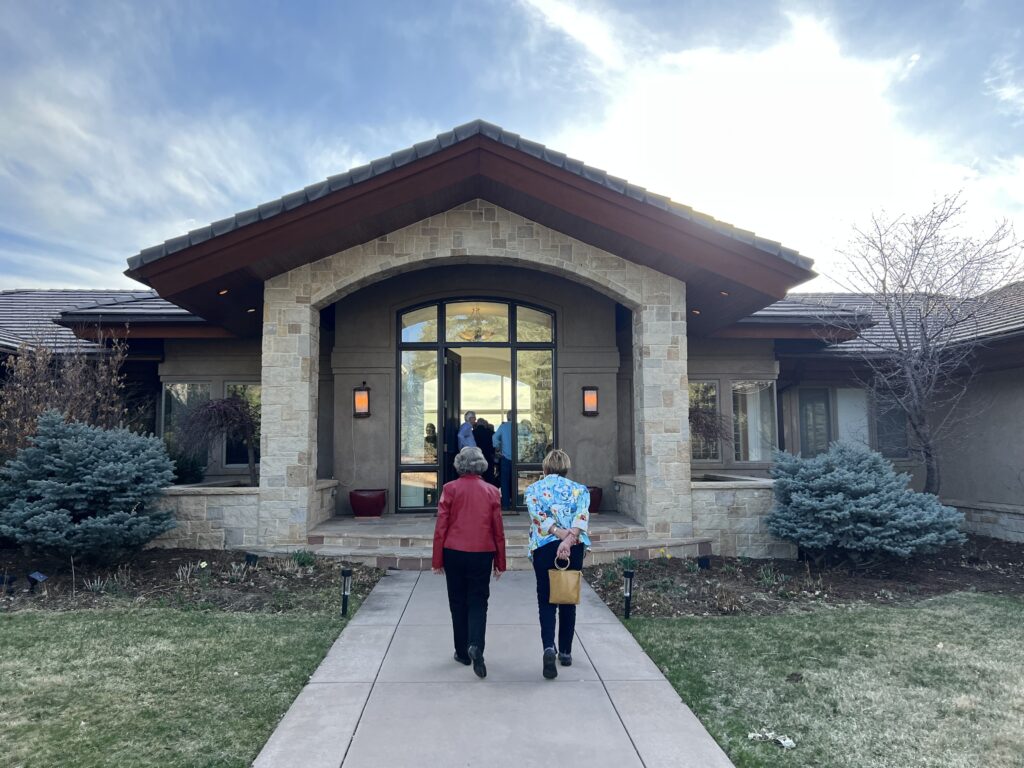
Since Republicans appear unified against the bill, backers can afford to lose only five Democratic votes in the Senate. And with key senators wavering, the sponsors in recent weeks have already exempted ski towns from the upzoning requirements and shrunk the requirements for other cities.
“I think the spirit of the bill makes a lot of sense for the time we're in. But getting the details right is, has been, the challenge,” said state Sen. Dylan Roberts, who was behind the ski town exemption. He also wants stronger guarantees that cities can manage growth in accordance with their water supplies.
Sen. Gonzales said the increasingly fragmented approach has been frustrating and has made negotiations even more difficult, though she understands her colleagues’ concerns.
“Either a bill is statewide or it's not. That, to me, is part of what we're struggling with right now as we consider the policy,” said Gonzales.
(Gonzales has introduced her own amendments to address displacement and eviction concerns.)
With just over two weeks left in the session, time is running out, And another Democrat, state Sen. Rachel Zenzinger of Arvada, is asking for an even more dramatic change before she’ll let the bill move forward. Zenzinger sits on the Senate Appropriations Committee, which the bill must pass to reach the full chamber.
She wants to see the bill stripped of all zoning mandates. In a text, she said many of the bill’s ideas are “sound policy,” but decried “the unconstitutionality of the state taking over the authority from the local government.”
Zenzinger even co-authored an op-ed against the bill, along with Republican Sen. Barbara Kirkmeyer, another Appropriations member.
The bill likely cannot pass the committee without Zenzinger’s vote. Another Democratic member of the panel, Bridges, also has indicated that he will only support the bill with significant changes.
That raises a striking possibility: The sponsors might have to gut the governor’s bill just to get it past this early stage. Any changes could be reversed later, but it adds a level of complexity and risk.
Kirkmeyer, the Republican, has proposed an amendment that would rewrite the bill almost completely. In her vision, the measure would instead focus on analyzing housing needs across the state and setting overall objectives, with incentives but no direct mandates for cities to get more units built. Kirkmeyer’s proposal also would include a formal statewide summit to discuss housing.
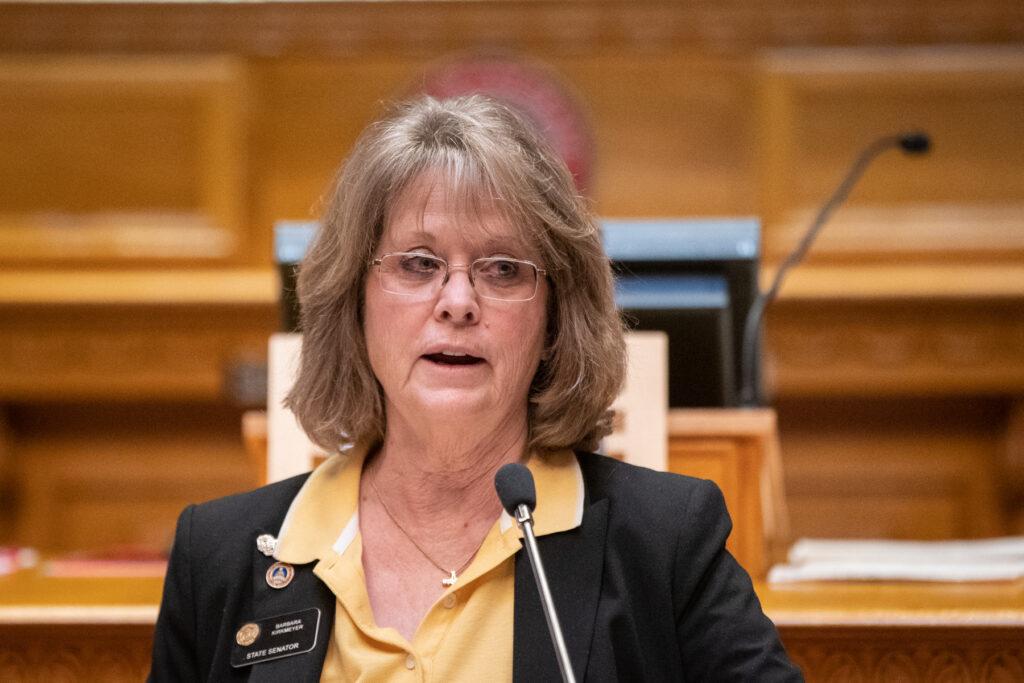
Kirkmeyer said on Monday that she was hopeful her amendment would carry the day — delivering a major upset to the Democratic governor’s priorities.
“He thinks he's just going to create all this housing and he's not,” Kirkmeyer said of Polis. “What he's going to do is destroy neighborhoods and impact people's private property rights and infringe on their quality of life.”
If the bill passes this next committee, it would then head to the full Senate for yet another battle, and then to the House, where Democrats have larger margins but a jam-packed calendar.
Senate President Steve Fenberg said he was confident the bill would pass, but left open the possibility of change.
“I think the bill is gonna pass in one form or another this year,” he said. But it will be a “longer conversation,” he explained. “Even if the core parts of the bill stay [in place] around transit-oriented development and middle housing, none of that's gonna happen overnight.”
Fenberg added: “If not everything is finished in one legislative session, I think that’s fine. I think people are willing to have that conversation in the longer term.”
But with just two weeks left before the legislature must adjourn, this year’s bill may come down to the wire.





